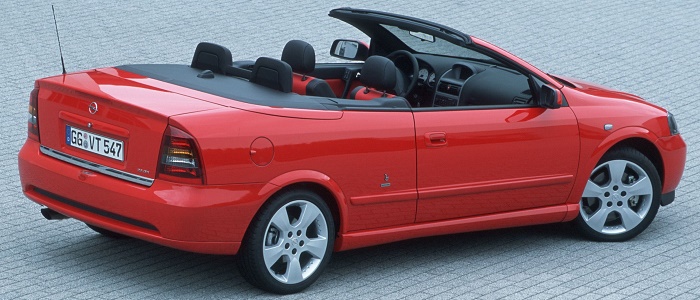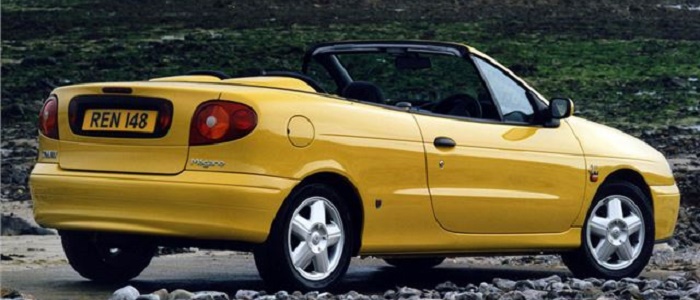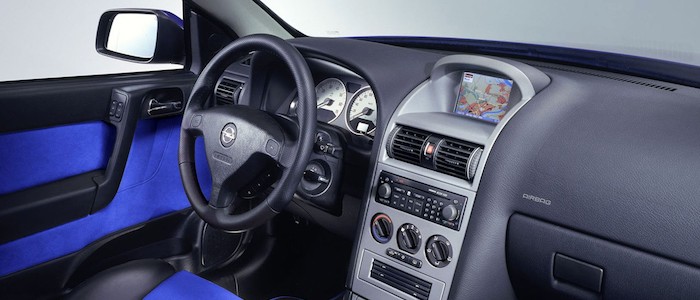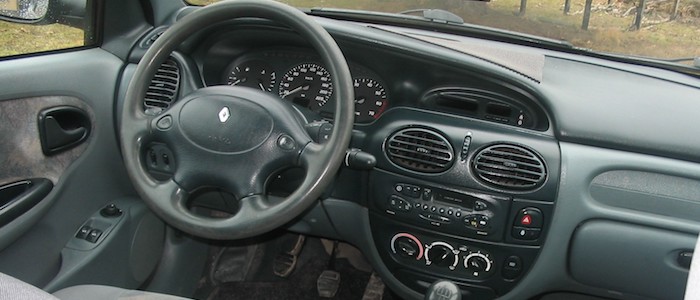Compare two cars
Compare any two cars and get our Virtual Adviser™ opinion
Dimensons & Outlines
Check vehicle history
Engine
Performance (manual gearbox)
Performance (automatic gearbox)
Expenses
Virtual Adviser's™ opinion
Well, these are two pretty similar cars we have here! It's only details that could potentially make the difference. Considering they both belong to the small family car segment and utilize the same 2-door cabriolet body style and the front wheel drive system, it all comes up to the specific petrol engine choice they offer. The first one has a Opel-engineered powertrain under the hood, a 4-cylinder, 16-valves 147hp unit, while the other one gets its power and torque from a 4-cylinder, 16-valves 138hp engine designed by Renault.
SafetyBoth vehicles got tested by European New Car Assessment Programme (Euro NCAP), with the same number of safety stars gained in the process. That aside, let's consider some other aspects which affect safety. Both vehicles belong to the small family car segment, which is generally classifying them somewhere in the middle safety-wise, but that fact doesn't break the tie between the two cars. Furthermore, if we'd like to consider vehicle mass in this context too, which we definitely should, the German car offers a considerable difference of 14% more metal.
ReliabilityManufacturers have been building their reliability reputation for decades now and, generally speaking, it appears that Renault does have a slight advantage, at least on all of the models level. These are the results of an independent reasearch, while our visitors describe reliability of Opel, as well as Renault, with the same average rating of 4.2 out of 5. Some independent research have also placed Astra as average reliability-wise, and Megane is more or less at the same level.Above it all, drivers of cars with the same engine as the German car rank it on average as 4.2, while the one under the competitor's bonnet gets 4.5 out of 5.
Performance & Fuel economyRenault is a bit more agile, reaching 100km/h in 0.9 seconds less than its competitor. Still, it lacks the power to win the top speed competition, topping at 208 kilometers per hour, 8km/h less than the other car. When it comes to fuel economy the winner has to be the French car, averaging around 7.5 liters of fuel per 100 kilometers (38 mpg), in combined cycle. We can't ignore that 9% difference compared to the German car.
Verdict
Renault appears just a bit more reliable, although the difference is truly marginal. The most important thing when deciding between any two vehicles should always be safety, both passive and active. In my opinion, everything taken into account, the German car offers significantly better overall protection, taking the lead here. When it comes to performance, both vehicles provide similar experience, so I wouldn't point any of them out. the French car , on the other hand, consumps significantly less fuel, and that's a big plus. No mistake, whatever you decide here, but I'd still go for the Renault. In any case that's my personal view, built upon all the data available to me. What should decide here though is the way you feel about the two vehicles, and I hope you'll find my guidelines useful in the process. I suggest you spend two more minutes in order to find out which car, based on your needs and budget, would be picked by the virtual adviser™, among thousands of similar, yet so different vehicles.






























